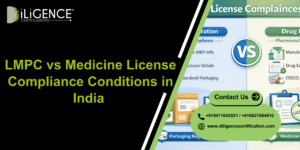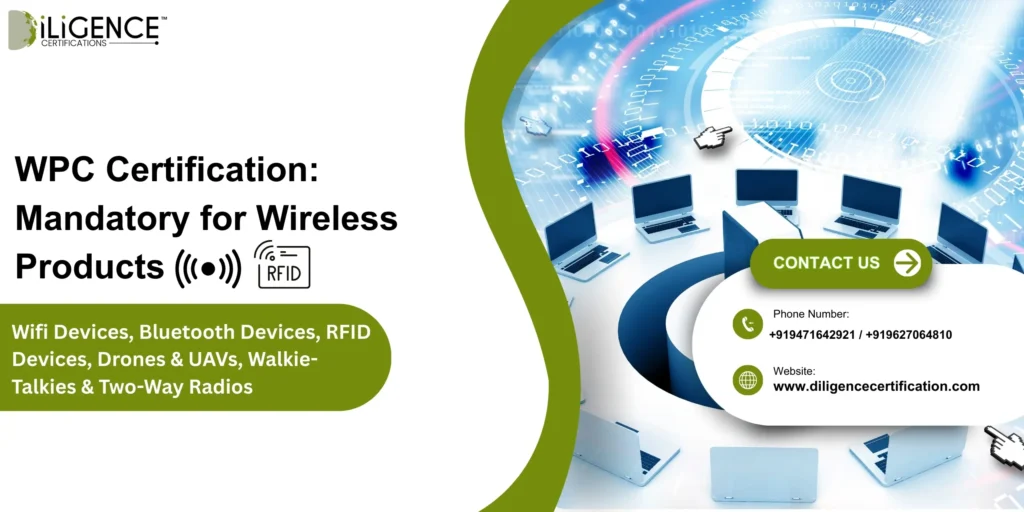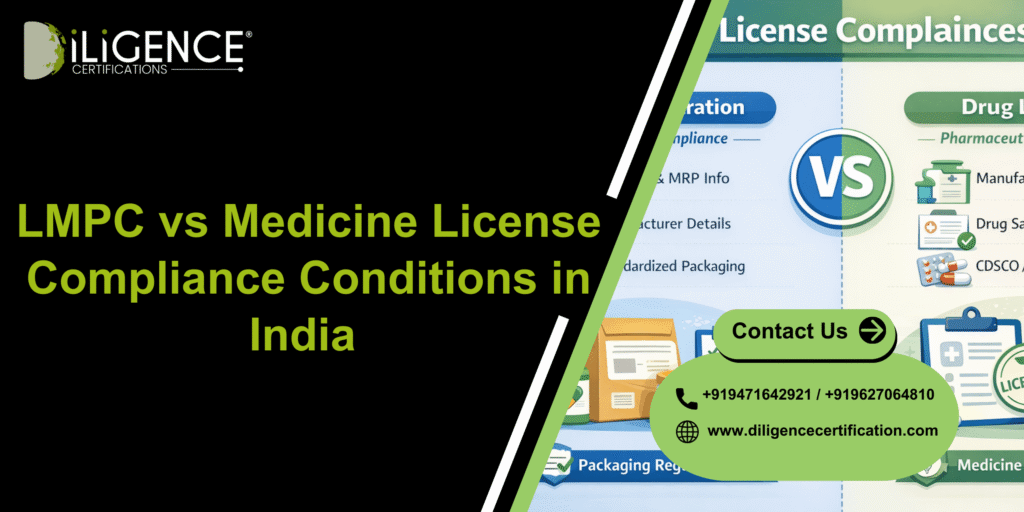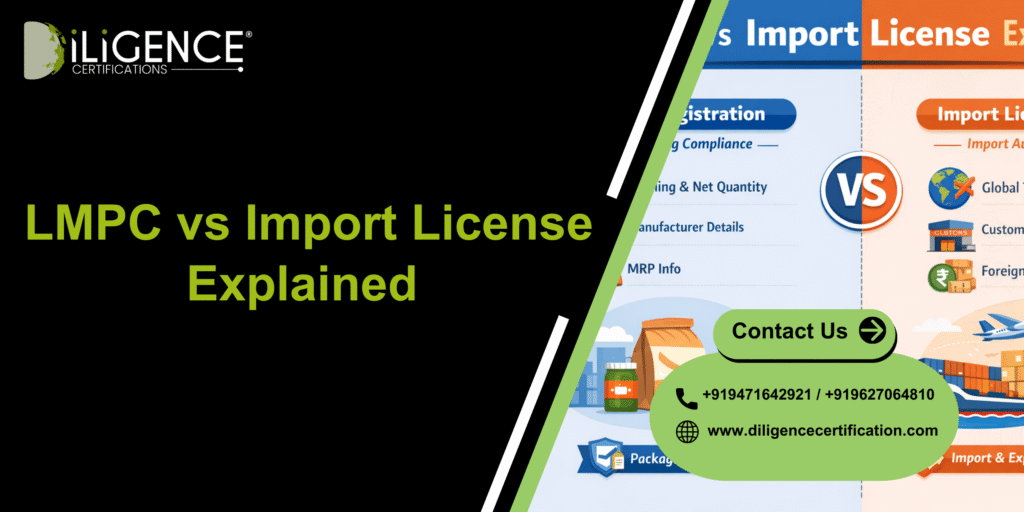- WPC Certification is required for wireless apparatus sold in India and is governed by the Department of Telecommunications (DoT).
- Wireless devices include smartphones, WiFi routers, Bluetooth devices, IoT equipment, or any apparatus that uses wireless communication.
- The process has four phases: 1) Preparation prior to application; 2) Technical tests; 3) Application; and 4) Approval and issuance of the certification.
- The total time required is from 10 to 16 weeks for standard products and up to 20 to 24 weeks for more complex devices (like IoT sensors).
- Required documents include technical specifications of the wireless device, RF parameters and test reports, and a committee registration certificate.
- The certificate is generally valid for a period of 3 to 5 years before it must be renewed (6 months prior to expiry).
Introduction
In the changing digital landscape of today, wireless devices are an essential part of businesses throughout India. Whether you manufacture a smartphone or import WiFi routers or develop IoT solutions, it is necessary to understand WPC certification if you want to legally operate in this market.
What is WPC Certification?

WPC certification is a required regulatory approval needed for all wireless communication devices, before being sold or utilized in India. WPC is required by the Department of Telecommunications (DoT), part of the Ministry of Communications. The WPC certification demonstrates that a manufacturer has conducted technical tests of the wireless device intending to operate in India, and will most importantly not have any interference with a current operating communication network.
Wireless devices are thoroughly tested in the certification process including the areas of radio frequency parameters (RFP), electromagnetic compatibility and safety. Any business that does not have the appropriate WPC certification will be subject to penalties that could result in products being seized, fines up to ₹50 lakh, and potential criminal liability under the Indian Telegraph Act.
A Delhi-based electronics importer was penalized ₹50 lakh for offering Bluetooth speakers that did not have WPC certification. The Enforcement Directorate seized the entire inventory of Bluetooth speakers, and the entire legal process took three years in an effort to resolve the penalty. This is an incident that took place in 2021, and the penalty demonstrates the importance of having appropriate WPC certification before placing products onto the marketplace.
Important Links
| Basic Requirements For WPC Certification |
| Documents Required For WPC Certification |
| How To Get RF Test Report |
| Process To Obtain WPC ETA Approval |
Understanding WPC License vs WPC ETA Approval
Many businesses confuse WPC License with WPC ETA Approval, leading to compliance gaps. Here’s the distinction:
WPC License is required for establishing wireless communication infrastructure, such as telecom towers, satellite earth stations, or radio broadcasting facilities. This involves operational permissions for spectrum usage.
WPC ETA (Equipment Type Approval), also known as WPC certification, pertains to all wireless equipment and devices, including mobile phones, routers, Bluetooth devices, and IoT sensors that will be sold or used in India.
For most companies that deal with consumer electronics or wireless devices, WPC ETA Approval is what you need. The WPC Approval process ensures your equipment is compliant with Indian technical specification and will not cause harmful interference with existing networks.
Mandatory WPC Certification: Which Products Need Approval?
The scope of WPC certification has expanded significantly with technological advancement. Currently, the following categories require mandatory certification:

Consumer Electronics
- Smartphones and feature phones
- Tablets with cellular connectivity
- Smartwatches with wireless features
- Wireless headphones and earbuds
- Bluetooth speakers and audio devices
Networking Equipment
- WiFi routers and access points
- Network switches with wireless capabilities
- Wireless bridges and repeaters
- Mesh networking systems
Industrial and IoT Devices
- Industrial wireless sensors
- Asset tracking devices
- Smart meters with wireless communication
- Vehicle tracking systems
- Remote monitoring equipment
Emerging Technologies
- 5G-enabled devices
- Edge computing devices with wireless connectivity
- Autonomous vehicle communication systems
- Drone communication modules
A Mumbai-based IoT startup learned this lesson the hard way when customs authorities held their smart sensor shipment worth ₹2 crore for lacking WPC certification. The six-month delay not only affected their client commitments but also resulted in storage costs and contract penalties.
WPC Certification Process: Step-by-Step Guide
Understanding the certification process helps streamline your compliance journey. Here’s a detailed breakdown:
To facilitate your compliance expedition, understanding the certification journey will assist with this. Below is a comprehensive outline:
Step 1: Pre-Application
- Technical documentation review: Collect comprehensive technical documentation, containing specifications, characteristics of radio frequency signals, power ratings, antenna specifications, and any other technical information. The technical documentation you gather must be in English, and follow DoT-provided templates.
- Select a testing laboratory: You will need to select a testing laboratory from the approved DoT list. Some examples of accredited laboratories are STQC, TEC, and private labs like Intertek and SGS. Factors involved in deciding on a laboratory include turnaround time, cost, and technical knowledge of your product.
- Prepare the test sample: You will need to prepare the test sample in line with your laboratory’s requirements. Usually you’ll have 3-5 working units and other possible test samples for destruct testing if that will be an outcome of the tests.
Step 2: Technical Testing
- Radio Frequency Testing: Laboratories will test all the required radio frequency testing including, spurious emissions, antenna gain, and frequency deviation. Testing will take the longest in this step, as it will take time to apply precision to all parameters.
- EMC Testing: Electromagnetic compatibility testing will confirm the device will not interfere with other electronic devices, and will operate as it should be in a given electromagnetic environment.
- Safety Testing: Safety testing will include electrical safety testing, durability, and thermal testing to measure and ensure the device can be used under all normal operating conditions.
Phase 3: Application Submission
- Online Portal Registration: Your application will be filed electronically via the DoT’s online portal (wpc.dot.gov.in). The online portal will elicit technical specifications, test reports, as well as any other confirmatory documents.
- Document Verification: DoT will liaise with you regarding the completeness and technical specifications of your submitted documentation.
- Fee Payment: Pay applicable fees based on product category and approval duration.
Phase 4: Approval and Certification
- Technical Assessment: The DoT technical staff will review the test reports and information in the application file. You may be asked some additional technical questions and/or submit additional information during this phase.
- Issuance of Certificate: DoT issues the WPC ETA certificate with a unique approval number, following a successful review of the application. This certificate grants permission to manufacture, import, and sell the certified model of equipment.

Timeline and Cost Considerations
How long does WPC certification take?
Based on our research of 500 certifications processed in 2024, a normal certification timeline is typically between 10-16 weeks for uncomplicated applications. As complex products or products requiring additional testing and/or iteration tend to run as 20-24 weeks.
Cost Structure: Total certification costs typically include:
| Cost Head | Description |
| Government Fee | Official charges payable to the authority for processing the WPC certification application. |
| Professional / Consultant Fee | Service fee charged by consultants or agencies for handling application, documentation, and coordination with WPC. |
| Total | Combined outlay including statutory and service charges, payable by the applicant. |
A Chennai-based manufacturer saved 40% on certification costs by consolidating multiple product variants into a single family certification, demonstrating the value of strategic planning.
Essential Documents for WPC Certification
Proper documentation significantly impacts approval timelines. Here’s your comprehensive checklist:
Technical Documentation
- Detailed technical specifications with RF parameters
- Block diagrams and circuit schematics
- Antenna specifications and radiation patterns
- User manual in English
- Installation and operation guidelines
Legal and Commercial Documents
- Company registration certificate
- Import-Export Code (IEC) certificate
- Authorized representative agreement (for foreign manufacturers)
- Power of attorney for consultants
- Product liability insurance documentation
Testing Documentation
- Accredited laboratory test reports
- Conformity assessment certificates
- Quality management system certifications
- Environmental compliance certificates
Supporting Materials
- Product photographs (all angles)
- Label designs and placement drawings
- Packaging specifications
- Declaration of conformity
WPC Certification Validity and Renewal Process
WPC ETA certificates are typically valid for 3-5 years, depending on the product category and technology evolution. The certificate covers the specific model tested and certified, not variations or upgraded versions.
Renewal Requirements
Start the renewal process 6 months before expiry to avoid market disruption. Renewal involves:
- Updated test reports if standards have changed
- Confirmation of unchanged technical specifications
- Fee payment for extended validity
- Compliance review for any regulatory updates
Validity
Some scenarios allow validity extension without complete re-testing:
- Minor software updates that don’t affect RF characteristics
- Cosmetic changes without antenna modifications
- Addition of non-RF features
Choosing Professional WPC Certification Consultant Services
Engaging experienced consultants can streamline your certification journey and avoid costly mistakes. Here’s what to look for:
Consultant Selection Criteria
- Technical Expertise: Verify experience with your product category. A consultant specializing in IoT devices may not be optimal for telecom equipment certification.
- Regulatory Knowledge: Be sure of current knowledge of DoT procedures and if there are any recent regulatory changes. The certification space changes rapidly with advancements in technology.
- End-to-End Services: Look for consultants that provide all services from document review to post certification assistance.
- Track Record: Ask for case studies and references from clients.
- Track Record: Request case studies and client references. Successful consultants should demonstrate consistent approval rates and timeline adherence.
Service Scope Evaluation
Professional consultants typically offer:
- Pre-certification feasibility assessment
- Documentation preparation and review
- Testing laboratory coordination
- Application submission and follow-up
- Query resolution and technical clarifications
- Post-certification compliance support
A Bangalore-based startup reduced their certification timeline by 6 weeks by engaging consultants who identified documentation gaps early and coordinated parallel testing activities.
Industry-Specific Considerations
Telecommunications Equipment
Telecom devices face stringent testing requirements due to network interference potential. Additional considerations include:
- Compatibility with Indian network operators
- Security vulnerability assessments
- Interoperability testing with existing infrastructure
IoT and Smart Devices
IoT devices often combine multiple wireless technologies, requiring comprehensive testing across all interfaces. Key considerations:
- Multi-protocol certification requirements
- Security and privacy compliance
- Scalability for family certifications
Automotive Electronics
Vehicle communication systems face unique challenges:
- Harsh environmental testing requirements
- Integration with vehicle safety systems
- Compliance with automotive industry standards
Why Choose Diligence Certifications for WPC Certification
- Multi-Product Experience: We do testing and certifications for IoT, telecommunications equipment, drones, RFID, etc.
- Stay Compliant: Informed on all current guidelines from the DoT and WPC
- Full Service: We provide complete support from preparation of documents, to coordination of actual testing, to post certification assistance.
- Diligence Certification: We assure that all documents and technical data are correct, reducing the potential to be rejected.
- Experience: By utilizing our process management and gap identification to minimize delays and receive certification approvals faster.
Conclusion
WPC certification is an important form of compliance for businesses operating wireless devices in India. While it may seem daunting, with proper planning, updated documentation, and professional assistance, everyone can plan for and achieve an effective certification and an ability to market.
The WPC certification framework consists of understanding the regulatory requirements that come with certification, contracting the appropriate technical services through the certification process, and demonstrating ongoing commitment to effective compliance. Whether you are developing your very first wireless product as a start-up or a manufacturer developing a new product, your investment into the WPC certification process is an investment in both business protection as well as sustainable wireless growth in the Indian market.
This environment will remain dynamic due to the nature of technology advances and revisions to the regulatory requirements. Keeping informed of regular updates and changes to the certification environment, and having responsive compliance strategies can only strengthen your business for long term success within the developing wireless hardware space within India.
Remember, WPC certification is not a compliance requirement that is completed, it is an opportunity to show your attention to quality, safety, and engineering excellence in the Indian market.
Frequently Asked Questions
What is WPC Import Certification?
Approval from India’s WPC to import and sell wireless devices legally.
Why is it needed?
To ensure products use approved frequency bands and avoid spectrum interference.
Who needs it?
Importers, manufacturers, or distributors of wireless products in India.
Which products need WPC approval?
Wi-Fi, Bluetooth, RFID, IoT devices, drones, walkie-talkies, and similar wireless gadgets.
What types of approvals exist?
ETA (Equipment Type Approval): For de-licensed bands (Wi-Fi, Bluetooth)
Import License: For restricted frequency devices.
How to apply?
Through the WPC online portal with technical documents and test reports.
What documents are required?
RF test report, IEC code, product manual, technical sheet, and authorization letter.
How long does it take?
2–4 weeks for ETA; longer for Import License.
What if you import without WPC?
Goods can be seized, fined, or banned by customs.
Can foreign companies apply directly?
No, they must authorize an Indian representative or importer.








 BIS Certification
BIS Certification
 CDSCO
CDSCO
 CPCB
CPCB
 LMPC
LMPC
 WPC Approval
WPC Approval
 Global Approvals
Global Approvals
 TEC
TEC
 ARAI
ARAI
 BEE
BEE
 ISO Certification
ISO Certification
 Drone Registration
Drone Registration
 NOC For Steel
NOC For Steel



















 Business Registration
Business Registration















 Legal Services
Legal Services
 Trademark Registration
Trademark Registration
 Copyright Registration
Copyright Registration
 Patent Registration
Patent Registration















































